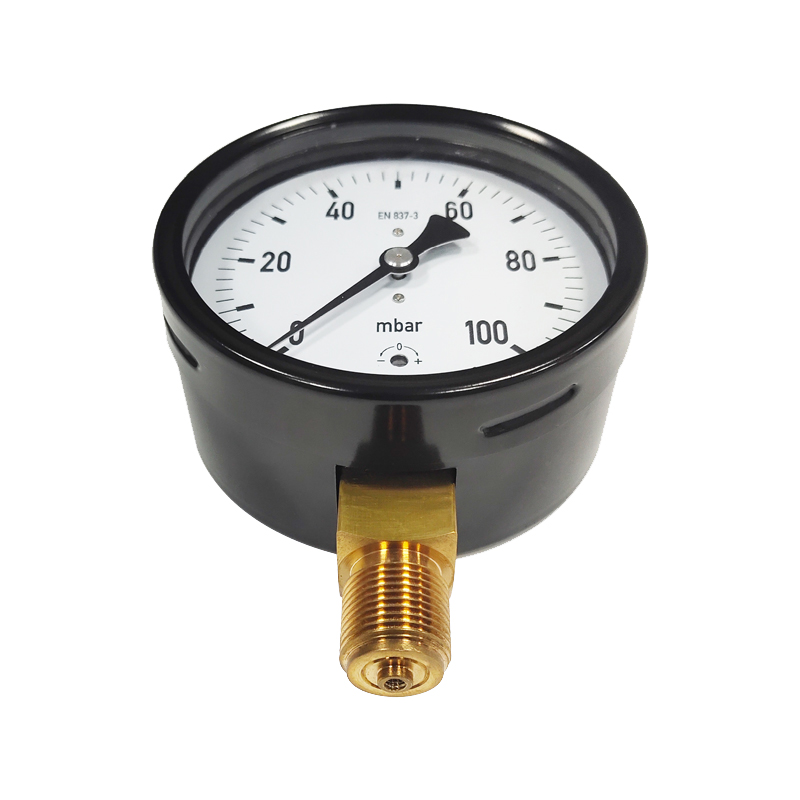
Oct . 13, 2024 08:51 Back to list
Understanding the Functionality and Maintenance of Diaphragm Seal Pressure Gauges
Understanding Diaphragm Seal Pressure Gauges Benefits, Applications, and Service
Diaphragm seal pressure gauges play a crucial role in various industries by providing accurate and reliable pressure measurements, particularly in harsh environments. These specialized instruments are designed to protect sensitive pressure sensing elements from corrosive fluids, high temperatures, and other adverse conditions. In this article, we will explore the benefits of diaphragm seal pressure gauges, their applications, and the importance of proper servicing.
What is a Diaphragm Seal Pressure Gauge?
A diaphragm seal pressure gauge consists of a pressure sensing element, typically a bourdon tube or a diaphragm, enclosed in a protective diaphragm seal. The diaphragm is made of materials that can withstand the specific conditions of the application, such as corrosion, high temperatures, or the presence of particulates. The sensing element translates the pressure exerted on the diaphragm through the filling fluid, usually oil or glycerin, which transfers the pressure to the gauge for measurement.
Benefits of Diaphragm Seal Pressure Gauges
1. Protection from Corrosion Diaphragm seals provide a barrier against corrosive fluids, ensuring that the pressure sensing element remains intact and operational. This is particularly important in industries such as chemical processing, where aggressive substances are common.
2. Prevention of Clogging By isolating the pressure sensing element from the medium being measured, diaphragm seals help prevent clogging caused by particulates, sludge, or sediment. This extends the life of the pressure gauge and maintains accuracy.
3. Temperature Compensation In applications involving high temperatures, diaphragm seals can be filled with temperature-resistant fluids that help maintain the accuracy of the gauge under extreme conditions, allowing for consistent performance.
4. Enhanced Accuracy The design of diaphragm seal pressure gauges allows for precise measurements by minimizing dead zones and ensuring that the pressure is evenly distributed across the sensing element.
5. Versatility These gauges can be customized with various materials for diaphragms and seals, making them suitable for a wide range of fluids and conditions. Options can include stainless steel, PTFE, and other materials depending on the application’s requirements.
diaphragm seal pressure gauges service

Applications of Diaphragm Seal Pressure Gauges
Diaphragm seal pressure gauges find extensive use in several industries, including
- Chemical Processing In environments with corrosive chemicals, diaphragm seals provide essential protection to ensure accurate measurements. - Oil and Gas These gauges are widely used in the oil and gas industry to monitor pressures in drilling and refining processes, where equipment can be exposed to extreme conditions.
- Food and Beverage Sanitary diaphragm seal pressure gauges help maintain hygiene while accurately measuring pressure in food processing applications.
- Pharmaceuticals In the pharmaceutical industry, maintaining sterile conditions is paramount; thus, diaphragm seals are essential for safeguarding sensitive pressure measurement components.
- Water and Wastewater Treatment Diaphragm seals are effective in environments where particles or sediments are present, ensuring that pressure readings remain reliable.
Importance of Servicing Diaphragm Seal Pressure Gauges
Regular servicing and maintenance of diaphragm seal pressure gauges are crucial for ensuring their longevity and accuracy. Over time, the filling fluid may degrade or leak, leading to inaccurate readings. Additionally, the diaphragm itself may become damaged or worn due to exposure to extreme conditions. Routine inspections should include
- Visual checks for leaks or damage - Calibration to ensure accuracy - Replacement of the filling fluid as needed - Assessment of the diaphragm for wear or corrosion
In conclusion, diaphragm seal pressure gauges are vital instruments across numerous industries, providing essential protection and accuracy in challenging environments. Their ability to prevent corrosion, clogging, and temperature-related issues, combined with their versatility, makes them indispensable for professionals. Investing in regular maintenance and servicing will ensure that these gauges continue to perform reliably, supporting safe and efficient operations.
-
High-Precision Mass Diaphragm Pressure Gauge - Reliable & Durable Solutions
NewsJun.10,2025
-
Explain Diaphragm Pressure Gauge Expert Guide, Top Manufacturers & Quotes
NewsJun.10,2025
-
Affordable Differential Pressure Gauge Prices in China Top Manufacturers
NewsJun.10,2025
-
Reliable Water Fire Extinguisher Pressure Gauges for Safety
NewsJun.10,2025
-
Durable Diaphragm Protection Pressure Gauges Get Quote
NewsJun.09,2025
-
WIKA Differential Pressure Gauge with Switch Reliable Monitoring & Control
NewsJun.09,2025
